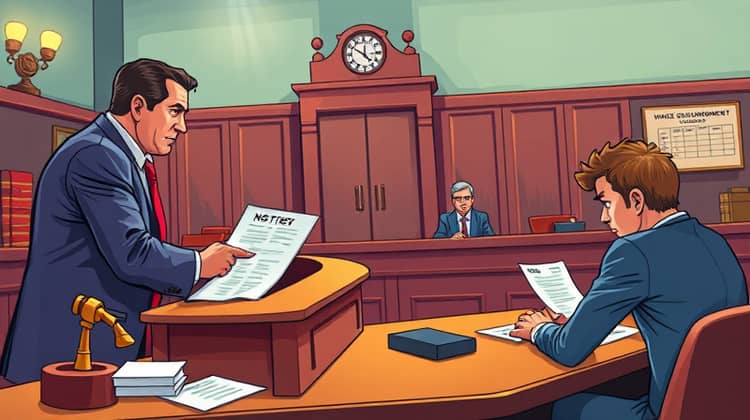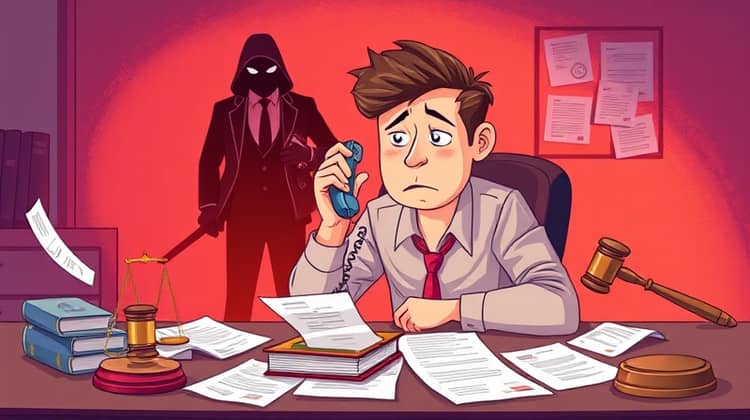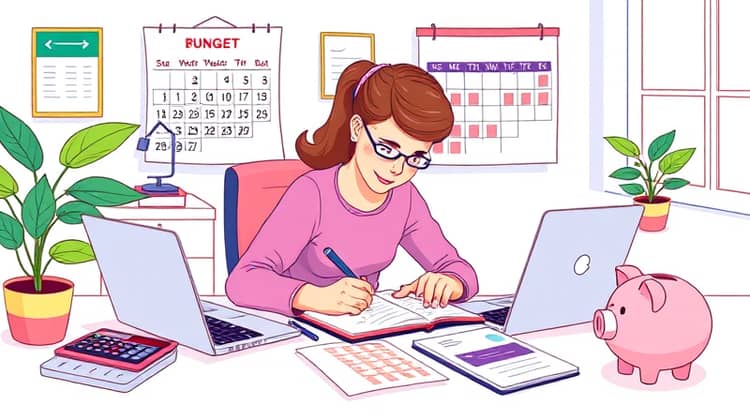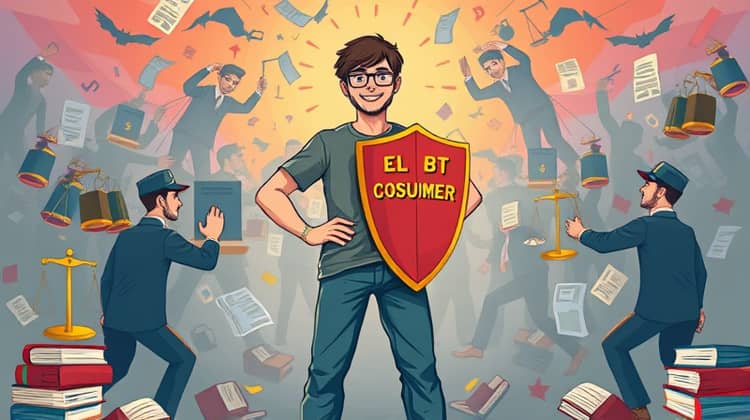Protecting Your Rights: How to Legally Handle Debt Collectors

Debt collection can be a distressing experience, especially when it feels like there is no way out. However, understanding your rights and the tactics employed by debt collectors can empower you to manage your situation effectively. This blog aims to provide valuable insights into how you can legally handle debt collectors while protecting your rights.
Being proactive and knowledgeable about the debt collection process is essential. You can significantly reduce anxiety and stress by familiarizing yourself with the laws governing debt collection and implementing best practices. This guide serves as a comprehensive resource for anyone grappling with debt collection issues in their financial life.
Ultimately, the goal is to equip you with the tools needed to confront this challenge at its core and reclaim your peace of mind. Getting a grip on your financial obligations doesn't have to be a battle; it can be a process of discovery and personal empowerment.
Understanding Debt Collectors

Debt collectors are agencies or individuals that attempt to collect debts owed by consumers to creditors. When a consumer fails to pay a debt, creditors often hire a debt collection agency to recover the owed money. While their services are legitimate, debt collectors sometimes employ aggressive tactics that can be both confusing and distressing for consumers.
It is crucial to understand that debt collectors are bound by laws that protect consumers from abusive practices. The Fair Debt Collection Practices Act (FDCPA) is a federal law that restricts the behavior of debt collectors and establishes guidelines on how they can communicate with you.
Familiarizing yourself with how debt collectors operate can prepare you for potential encounters. Knowing what to expect can help you handle situations that arise and minimize the stress associated with debt collections effectively.
Know Your Rights

As a consumer facing debt collection, it is vital to understand your rights. The FDCPA provides you with several protections against unfair or abusive actions by debt collectors. Knowing these rights will empower you to stand up against unlawful practices.
Here are several rights that you, as a consumer, have under the FDCPA:
- You have the right to request validation of the debt, ensuring it is legitimate and within the legal realm.
- You cannot be contacted at odd hours or at your workplace without permission.
- Debt collectors are prohibited from using threatening or abusive language.
- You can communicate your wish not to be contacted by the debt collector and expect them to cease communication.
Being aware of these rights is the first step towards protecting yourself against harassment and ensuring you are treated fairly. Always hold on to documentation regarding your debts and any communications with collectors for your records.
Legal Tactics Used by Debt Collectors

Debt collectors often use various legal tactics to recover debts, which may sometimes cross the line into unethical behavior. Understanding these tactics can help you identify when a debt collector threatens your rights, allowing you to respond appropriately.
- Litigation: Debt collectors may resort to filing lawsuits, which can lead to court orders for wage garnishment or property liens.
- Credit Reporting: They might report unpaid debts to credit bureaus, negatively impacting your credit score and ability to secure loans.
- Harassment: Some debt collectors engage in constant calls and threatening behavior to pressure you into payment.
While these methods are legally permissible, they can cause significant distress. It's essential to know how to respond to these tactics calmly and legally.
How to Handle Debt Collectors

Dealing with debt collectors doesn't have to be a daunting task; with the right strategies, you can effectively manage their demands. The first step is to remain calm and collected during communications. Remember, you have the right to control the interaction.
Document everything. Record the date, time, and content of conversations with debt collectors, as this information may be critical should disputes arise. Keeping a paper trail can protect you against wrongful claims and ensure transparency.
- Request written verification of the debt within five days of the first contact.
- Make sure to respond to debt collection notices promptly to avoid escalation.
- Communicate in writing rather than by phone to have a record of correspondence.
- Consider negotiating the debt or setting up a payment plan that fits your financial situation.
Managing debt collectors effectively hinges on communication and documentation. By handling the situation well, you can feel more in control of your finances and ease some of the stress involved.
When to Seek Legal Help

While handling debt collectors can be straightforward, certain situations may warrant legal intervention. If you find yourself continually harassed or think a collector has broken the law, seeking legal advice may be essential. An attorney specializing in debt collection law can provide guidance and support.
Additionally, if a debt collector decides to take legal action against you by filing a lawsuit, it is wise to consult a lawyer. A professional can help you navigate the legal system and defend your rights effectively. For instance, if unanticipated consequences, such as wage garnishment, arise, legal counsel can guide you on the next steps and any recourse available to you.
When a collector is pursuing a debt that exceeds the statute of limitations or if they are attempting to collect a debt that you do not owe, contacting an attorney can protect your interests. They can assess your situation and direct you accordingly. It's important to act swiftly before issues escalate further.
Tips for Avoiding Debt Collection Issues

Preventing debt collection issues is always more manageable than dealing with them after they arise. Taking proactive measures can help maintain your financial wellness and reduce stress in the long run. Here are some essential tips to keep in mind.
Firstly, maintaining an open line of communication with your creditors is crucial. If you foresee issues with making a payment, reach out to them proactively to discuss potential alternatives.
- Create and stick to a budget that ensures you can manage your expenses and debts appropriately.
- Set reminders for due dates on bills to avoid slipping into overdue status.
- Seek to build an emergency fund to cover unforeseen expenses and avoid falling behind on debts in the future.
- Educate yourself about personal finance to enhance your knowledge and confidence in managing your money.
By implementing these tips, you can minimize your exposure to debt collection issues and improve your overall financial stability.
Conclusion

In summary, understanding your rights as a consumer and knowing how to handle debt collectors can significantly reduce the stress associated with financial obligations. Equipping yourself with knowledge and best practices not only empowers you but also enables you to navigate this challenging experience with confidence.
Whether you encounter legal tactics from debt collectors or need strategies to communicate effectively, the information provided here serves as a valuable resource. Arm yourself with the knowledge that you have rights, and don't hesitate to protect them.






